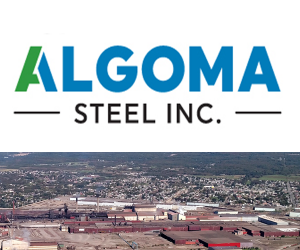 The Government of Canada’s number-one priority remains keeping Canadians safe and supporting families and businesses through the COVID-19 pandemic. Even at this time, work continues, to help the economy recover, create conditions for new jobs, lower emissions, and make life more affordable for Canadians.
The Government of Canada’s number-one priority remains keeping Canadians safe and supporting families and businesses through the COVID-19 pandemic. Even at this time, work continues, to help the economy recover, create conditions for new jobs, lower emissions, and make life more affordable for Canadians.
Today, the Member of Parliament for Sault Ste. Marie, Terry Sheehan, on behalf of the Minister of Environment and Climate Change, the Honourable Jonathan Wilkinson, announced an investment of approximately $4 million from the Low Carbon Economy Fund to support Algoma Steel Inc.’s climate action initiatives. The integrated steel producer will use the funding to improve both the tar-removal and light-oil-recovery areas of its coke-making plant in Sault Ste. Marie, Ontario. This process will not only help reduce greenhouse gas emissions but will also help improve local air quality.
The funding for this investment comes from the Champions stream of the Government of Canada’sLow Carbon Economy Challenge, which invests in projects that reduce carbon pollution, save money, and create good jobs. From this project, Algoma Steel Inc. will see an annual reduction of approximately 21,000 tonnes of greenhouse gas emissions, amounting to a cumulative reduction of about 596,000 tonnes over the project’s lifetime. That amount is equivalent to removing approximately 182,000 cars off the road for one year.
Canada’s climate plan is on track to deliver the largest emissions reduction in the country’s history. But these initiatives are just the beginning. The Government will continue to bring forward new and enhanced climate action measures to exceed our 2030 target and achieve net-zero emissions by 2050.
“As Canada safely reopens, our government is making strategic investments to stimulate local economies, create local jobs, and fight climate change. This investment through the Low Carbon Economy Fund will support Algoma Steel’s efforts to switch to clean technology and will create new manufacturing and construction jobs for the people living in Sault Ste. Marie. This is an excellent example of how Canada will build back better following the pandemic.” – The Honourable Jonathan Wilkinson, Minister of Environment and Climate Change
“The environment and the economy go hand in hand. This investment marks an important milestone in making the Sault’s steel industry safer for the community, better for our environment, and more innovative for the future.” –Terry Sheehan, Member of Parliament for Sault Ste. Marie
“Algoma Steel has joined our Canadian peers in aiming to achieve net-zero carbon emissions by 2050. It is an ambitious but important goal, one that requires the support of governments, research partners, customers, and our supply chain along the way. The tar-and-light-oil project brings us one step closer to that goal, and we could not have done it without the support of the Government of Canada and the Low Carbon Economy Fund.” – Michael McQuade, Chief Executive Officer of Algoma Steel Inc.
Quick facts
- The coke-making process of steel production generates a variety of by-products including coke-oven gas, various tars, and light oil. By using better equipment to capture and remove by-products suspended in coke-oven gas, a steel manufacturer can reduce its greenhouse gas emissions and reduce local air pollution.
- Once separated from the other by-products, the coke-oven gas can be used to fuel other in-plant combustion processes at a lower carbon intensity.
- This project will improve air quality by capturing and removing pollutants suspended within the coke-oven gas.
- The Champions stream of the Low Carbon Economy Fund is an important part of Canada’sclimate action plan, and it’s helping put Canada on a path to meet and exceed the Paris Agreement target for 2030.
- Thank you from the Dumonts - February 13, 2026
- Wawa Fire Department Awarded 2025 Royal Canadian Legion Charitable Foundation Grant - February 13, 2026
- Ladies Curling Standings – February 13 - February 13, 2026
 Wawa-news.com Local and Regional News
Wawa-news.com Local and Regional News
